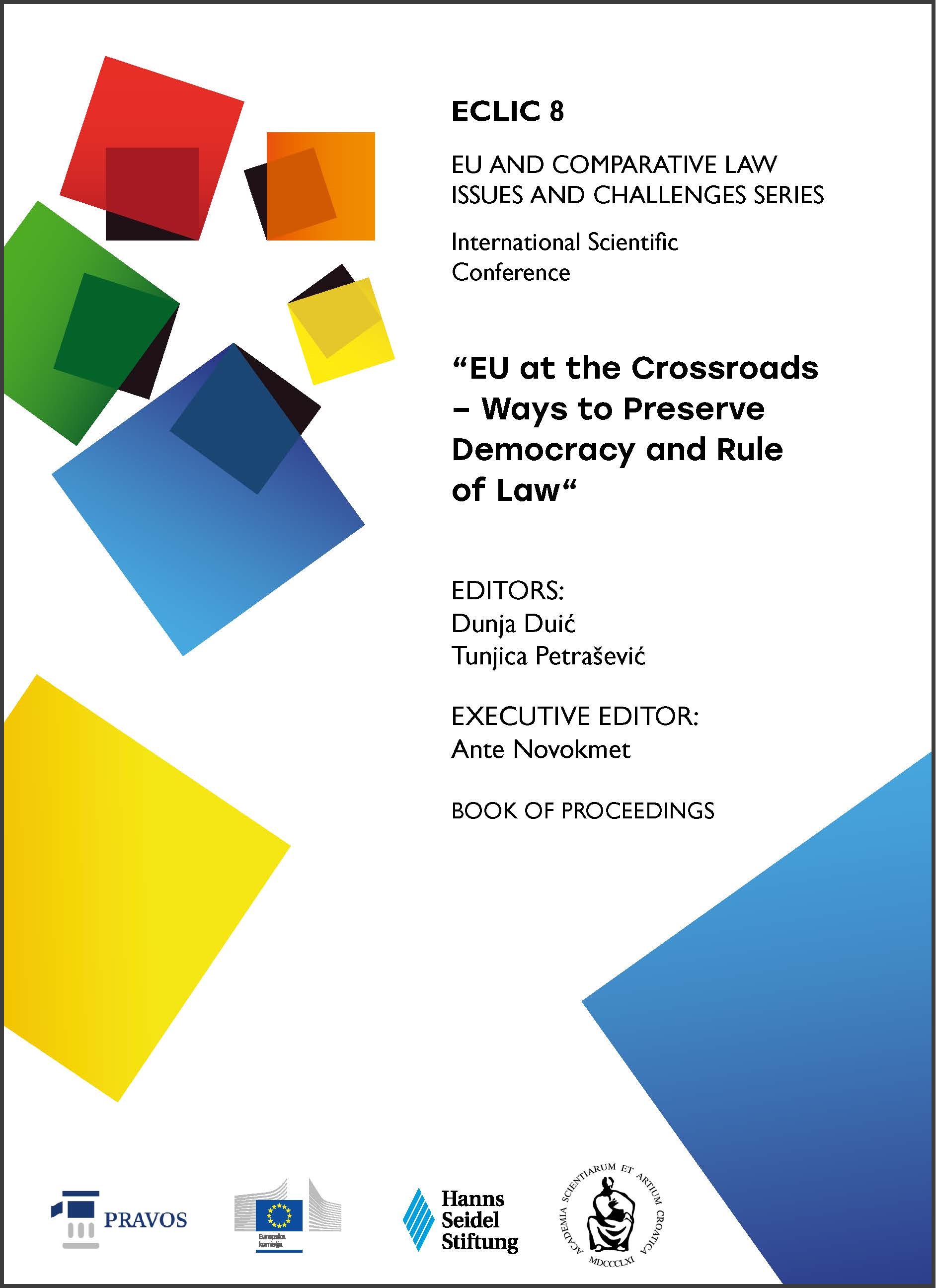MARKET INTEGRATION AND COMPETITION AS A WAY TO STRENGTHEN THE RULE OF LAW AND DEMOCRACY IN THE ENLARGED EUROPEAN UNION
DOI:
https://doi.org/10.25234/eclic/32282Abstract
The European Union has guaranteed peace and economic advancement for a long period since its creation. Nevertheless, the European project – in particular in 2024, year in which the European Parliament and the European Commission will be renewed – appears at the crossroad, threatened by the complex global geopolitical situation, the emergence of strong industrial players, the rise of populist parties, and an economic downturn which lowered the ‘social safety net’ which has always characterised the EU area. The correlation between the ‘health’ of the common market and its implications on the social and political level, with particular reference to democracy and the rule of law, have not been at the forefront of the political and legal debate and, especially, solutions have not been proposed in a satisfactory and effective manner. This paper aims at analysing the correlation between the state of the European market and its impact on democracy and the rule of law through the lens of competition law, in order to establish a link between the competitiveness of the European market and better social conditions for European citizens. This analysis will follow as lodestar the programmatic description of the ‘social market economy’ contained in Article 3, paragraph 3, of the Treaty on the European Union. The paper sustains that exactly a revamped version of the social market economy model – with its Ordoliberal roots – represents the key in order to boost the European economy and to restore a proper level of social protection in the European Union, being this a driver also towards a healthily democratic society. Furthermore, only by sticking to the core values permeating its market and its society, the EU could fight in the Global scenario, cause its model, differently from others, still represents the most mature sublimation of concepts such as democracy, rule of law, social wellness and inclusion. Therefore, the EU can regain its propulsive and attractive force – especially in light of the awaited expansion in the Western Balkans region – only by turning back to the Treaties and the political roots which were at the basis of the EU project, with particular reference to a healthy and workable competition in the market. Only this approach is deemed to provide the EU with the essential tools in order to find a proper role in the international scenario in light of challenges such as digitalisation (and the advent of AI), the green transition, and the complex political scenario. This paper, in conclusion, will therefore provide a framework which explains how the European competitive market model is to be regarded as a ‘guardian’ of values such as democracy and the rule of law and how the EU can keep its leadership in the promotion and maintenance of these values through a renewed version of the ‘social market economy’ concept.
Downloads
Published
How to Cite
Issue
Section
License
Copyright (c) 2024 Andrea Piletta Massaro

This work is licensed under a Creative Commons Attribution-NonCommercial 4.0 International License.
Authors retain the copyright on the papers published in the Journal, but grant the right of first publication to the Journal. Papers accepted for publication or already published in ECLIC of the Faculty of Law in Osijek may be published by the author(s) in other publications only with proper notice of its previous publication in ECLIC.


